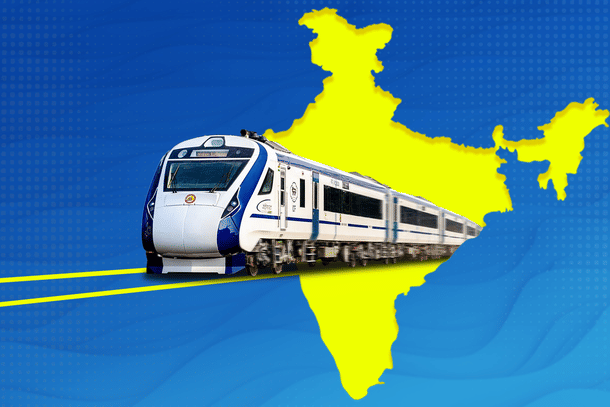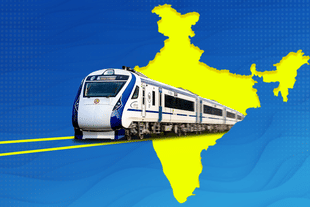Infrastructure
Rollout Of 200 Vande Bharat Sleeper Trains To Be Delayed Amid Ongoing Design Negotiations For Rs 60,000 Crore Project
V Bhagya Subhashini
Sep 27, 2024, 03:54 PM | Updated 03:54 PM IST
Save & read from anywhere!
Bookmark stories for easy access on any device or the Swarajya app.


The rollout of 200 sleeper variant Vande Bharat trains is likely to face delays as ongoing negotiations concerning design changes and the length of the trains remain unresolved.
The Indian Railways is seeking to procure 24-coach trains under the nearly Rs 60,000 crore supply and maintenance contract, but work on the necessary prototypes has yet to commence.
According to Economic Times report, discussions surrounding the fresh design modifications have hindered progress. The supply and maintenance contract for the 200 Vande Bharat sleeper trains was awarded to Kinet Railway Solutions, along with a consortium of Bharat Heavy Electricals Ltd (BHEL) and Titagarh Rail Systems (TRS) in mid-2023. Initially, prototype trains were expected to be showcased within a year, but both suppliers have not yet begun prototype development.
"The terms of the contract allow for flexibility in the coach composition per rake. The Railways can request trains with 12, 16, or 24 coaches without incurring additional costs," stated a senior official familiar with the plan.
Kinet Railway Solutions, an Indo-Russian joint venture, was awarded the contract to supply 120 of the Vande Bharat sleeper trains at a cost of ₹120 crore per 16-coach rake. The BHEL-TRS consortium received an order for 80 trains at the same rate. A spokesperson from Kinet Railway Solutions acknowledged that discussions with Indian Railways are ongoing, focusing on the details of a scope change request.
"Once all aspects have been agreed upon, a new project timeline will be established to reflect the revised scope. Kinet is fully committed to implementing the contract in close collaboration with Indian Railways," the spokesperson added.
Separately, BEML and the Integral Coach Factory (ICF) in Chennai have received contracts for supplying 10 trains on a nomination basis. Earlier this month, some coaches from the BEML-ICF prototype train were showcased, with the first batch expected to begin commercial operations later this year.
The Vande Bharat sleeper train can operate at speeds of up to 160 kmph, and reaching 180 kmph during tests. The introduction of sleeper coaches addresses the ergonomic challenges commonly faced in traditional sleeper class trains. Leveraging similar technology as the chair car variant, these coaches promise benefits such as jerk-free, noiseless rides, quick acceleration, and deceleration.
Passengers can anticipate improved foot area on the ladder for easier entry, new toilet designs, and enhanced air conditioning with better control. Incorporating cutting-edge technology, the seat cushions feature advanced comfort features, while stringent measures ensure a safe and hygienic travel environment.
Internationally, the manufacturing cost of one coach is approximately Rs 10 crore. However, due to the indigenous design of the Vande Bharat sleeper coach, its cost is reduced to around Rs 8 crore to Rs 9 crore.
As negotiations continue, the future timeline for the Vande Bharat sleeper trains remains uncertain, leaving many to wonder when these much-anticipated trains will hit the tracks.
V Bhagya Subhashini is a staff writer at Swarajya. She tracks infrastructure developments.





